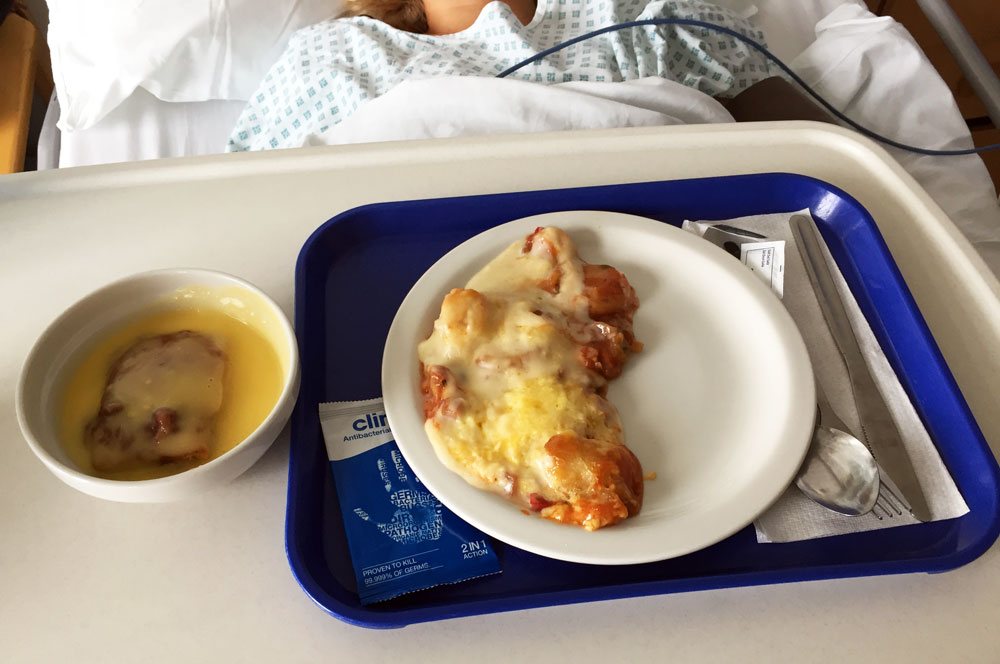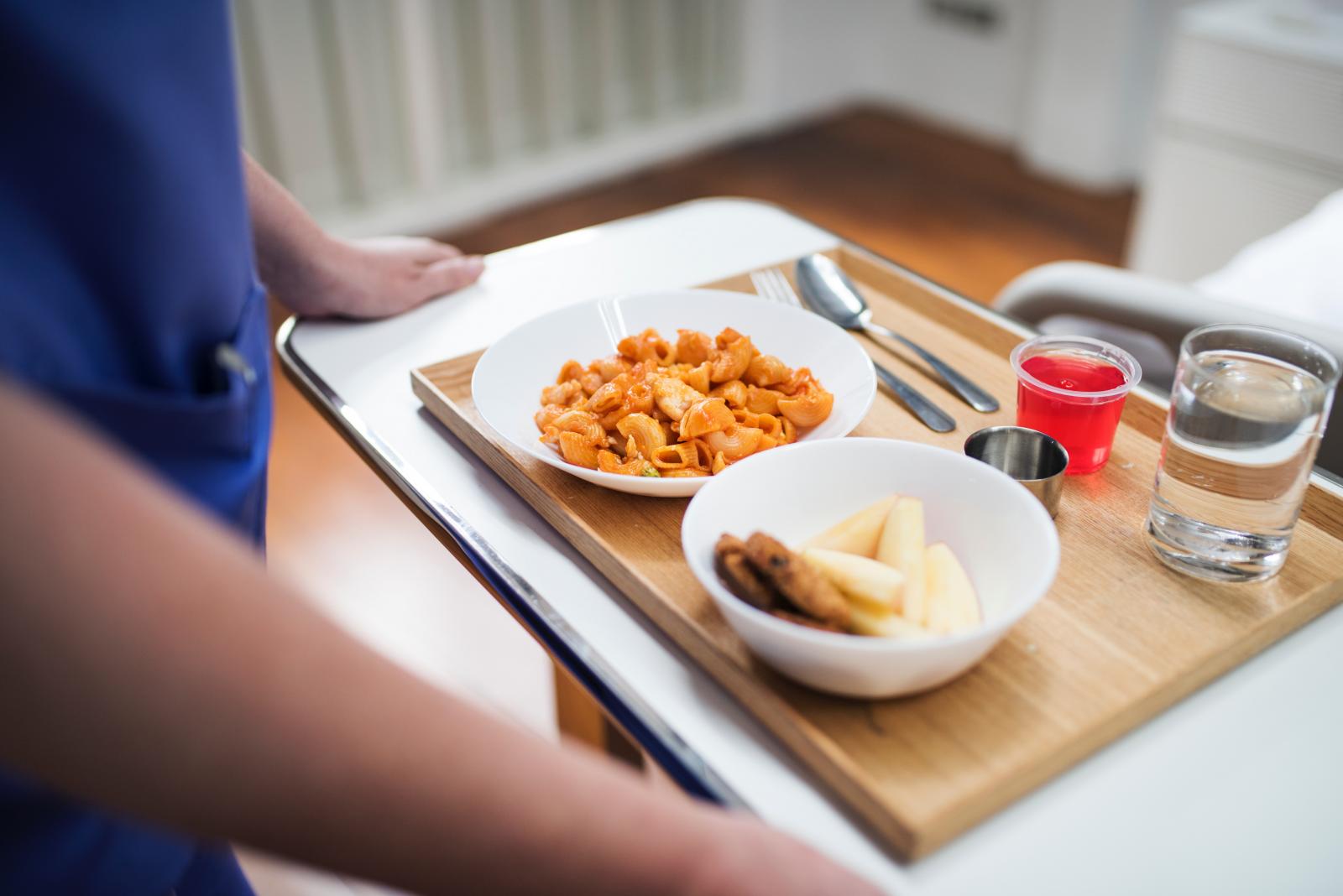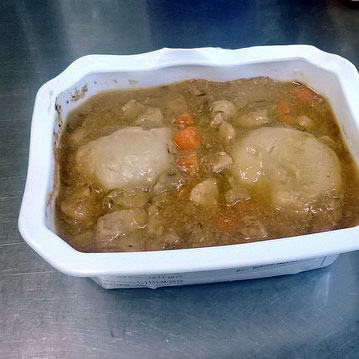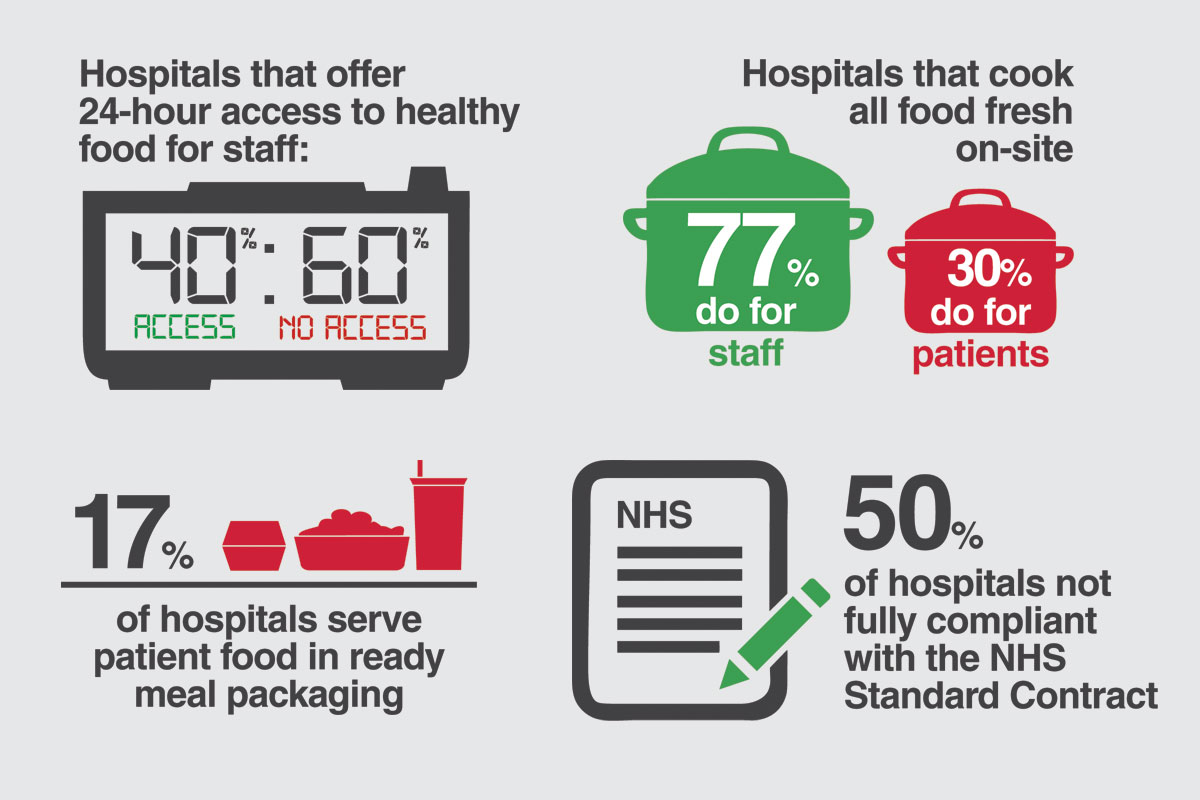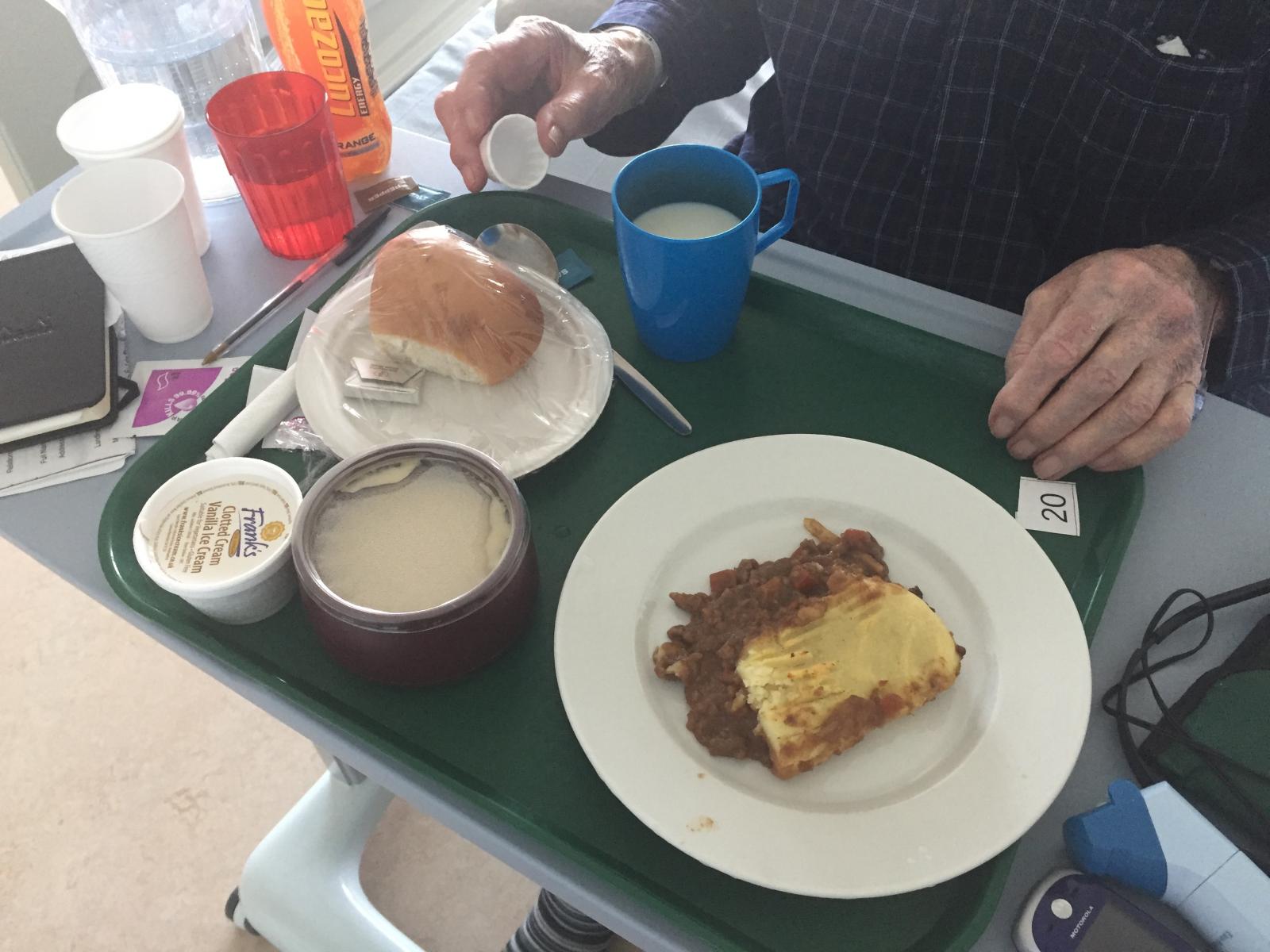Hospital food: The chef that hopes to improve standards
You are ill, in hospital and might not feel like eating anything.
Maybe you could stomach chicken soup. But the odds are you won't be served it.
Some hospitals are serving locally sourced, sustainable, nutritious food, and receiving accolades for it, as they are saving money, food waste and jobs.
However, according to a report produced by The Campaign for Better Hospital Food, the UK government has wasted more than £54m of taxpayers' money on failed attempts to improve patient meals since 1992.
There have been 21 failed initiatives, it says, many involving celebrity chefs such as Albert Roux, Heston Blumenthal or broadcaster and gastronome Loyd Grossman.
But one chef has recently been working to make a difference.
In the BBC Two series Operation Hospital Food, James Martin went in to the Royal Orthopaedic Hospital in Birmingham to give things a shake-up. Previously he had done similar at Scarborough General Hospital, North Yorkshire.
"Every hospital has its own particular problems," he says. "With only three months to complete the transformation it has seemed like an impossible task."
He was shocked to find 40% of food being thrown away, the catering department crippled by a huge overspend and facing the threat of closure, and no system to assess how many people they were cooking for - or what they would like to eat.
"At times I have actually sat at home thinking, 'Is it worth it?', because I simply wasn't getting anywhere," says the chef.
"But I passionately believe that patients deserve the best standard of food available and I'm determined not to fail."
He introduced a new seven-day menu helping the head chef take control of stock management and ordering, and combining the restaurant menu and patient menu to save costs.
His new lunch and dinner menu featured healthy, nutritional classics, including cauliflower cheese with leeks, slow roast shoulder of pork, and a range of soups such as roast parsnip, or carrot and coriander - made with fresh not packet ingredients.
Desserts, which could be swapped for fruit salad, included pancakes with orange sauce, steamed treacle sponge, and baked rice pudding with raspberries.
James Martin is perhaps best known for presenting the weekend food show Saturday Kitchen on BBC One.
So could a Saturday Kitchen-style menu save the day?
"I have tasted some of his dishes like the soup for the starter and they are really good," says Lucy Jones, consultant dietician and co-director of Nutrifit Health Ltd, based in Purley, Surrey.
In fact soups can be both comforting and nutritious and are appealing to those convalescing.
"One of the areas we have fallen down on in the past is that the dishes can be far too rich. Meals should be relatively bland, not too rich and easy to digest, with a soft texture," she says.
James Martin recruited chefs Stephen Terry, Galton Blackiston, Paul Merrett, Lawrence Keogh, James Tanner and Chris Tanner to each work with a hospital in their own area.
Since then, a 92-dish menu he and Stephen Terry created has been adopted by 115 NHS hospitals in Wales.
Campaigners want more fresh, organic and locally-sourced fruit and vegetables
Gardening expert Alys Fowler has a partner who has a genetic disease and has two or three hospital stays a year.
"Sick people can be really finicky about what they eat. Depending on how you are feeling, anything challenging can make you nauseous. It's a really contested and difficult thing," she says.
She has sympathy with catering providers, as "although the food system is not ideal, they are working on a budget".
However, "going for the cheapest option all the time is not always good for patients", says Amy Leech, a policy officer with the Soil Association, which campaigns for healthy and sustainable food and farming.
Some hospitals are criticised for preparing processed, non-locally sourced food.
Recently horsemeat has been found in some hospital food served in Northern Ireland, and questions are being asked over the supply chain in England's hospitals.
Buying cheap processed food "is not a sensible thing to do", says Alex Jackson, from the Campaign for Better Food.
"Local and seasonal food is good for a number of reasons: it creates less food miles, it supports the local economy and local farmers, and can be grown in a natural way," he explains.
"The kind of standards we'd like to see, are environmental and ethical standards. Eggs should be cage-free, hospitals should be buying more cage-free poultry and sustainable fish. It's not only about how healthy it is, but the benefits for all with good provenance."
So how do meals measure up nutritionally?
In Wales, a patient is assessed whether they are nutritionally at risk, healthy or well, says Alex Jackson. The assessment is used to decide what they are fed, a policy not necessarily followed elsewhere.
"Hospital food in Scotland and Wales has to meet nutritional standards, but hospital food in England doesn't," he adds.
"If you look at nutritional guidelines on a daily basis, each meal served should contain a third of a patient's daily nutrients and a variety of micronutrients," says Lucy Jones.
"Malnutrition in hospitals is so widespread. It has a massive impact on recovery. It has been a problem in the past. People can end up with pressure sores if not getting enough to sustain them moving around," she explains.
According to the Campaign for Better Hospital Food, some hospital meals served in 2012 were saltier than fast food burgers.
James Martin has tried to ensure his menus are fresh and nutritionally-balanced.
Lucy Jones says variety is important, ensuring menus contain many types of foods.
"Those having cancer treatments may do better on cold, dry things," she says. "And anyone in there for a long time can get food fatigue if always having same things."
Nottingham University Hospitals and North Bristol hospitals serve a variety of fresh, local produce, says Amy Leech.
They follow a catering mark scheme designed to show that food is freshly prepared, free from undesirable additives and better for animal welfare.
"We are helping hospitals try to achieve the mark by serving 75% fresh food, farm-assured meat," she says.
It's a target James Martin has also encouraged hospital catering staff to meet.
Saturday 23 February 2013
BBC Food
Published Saturday 23 February 2013
Better Hospital Food: The campaign represents a coalition of organisations calling on the Westminster government to introduce mandatory nutritional, environmental and ethical standards for food served to patients in NHS hospitals in England.
